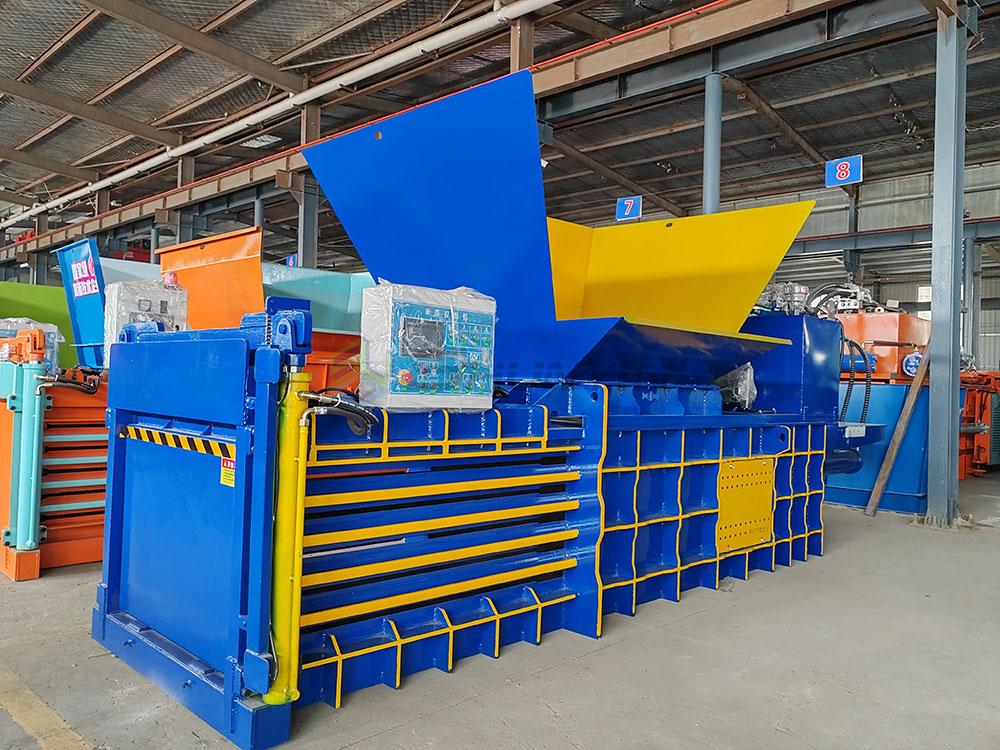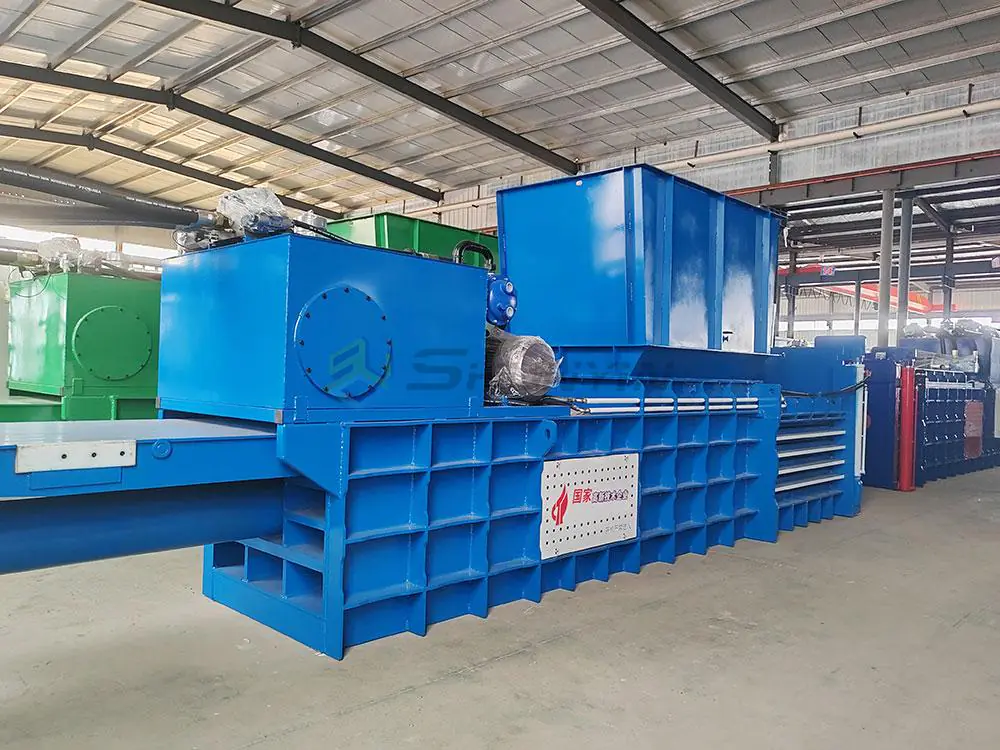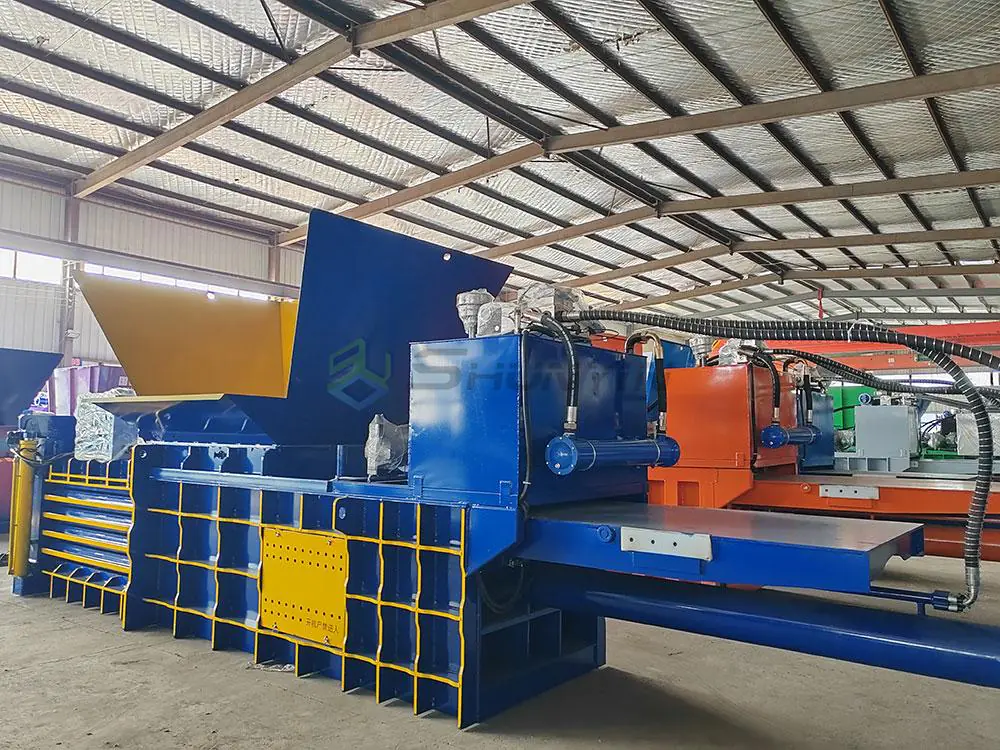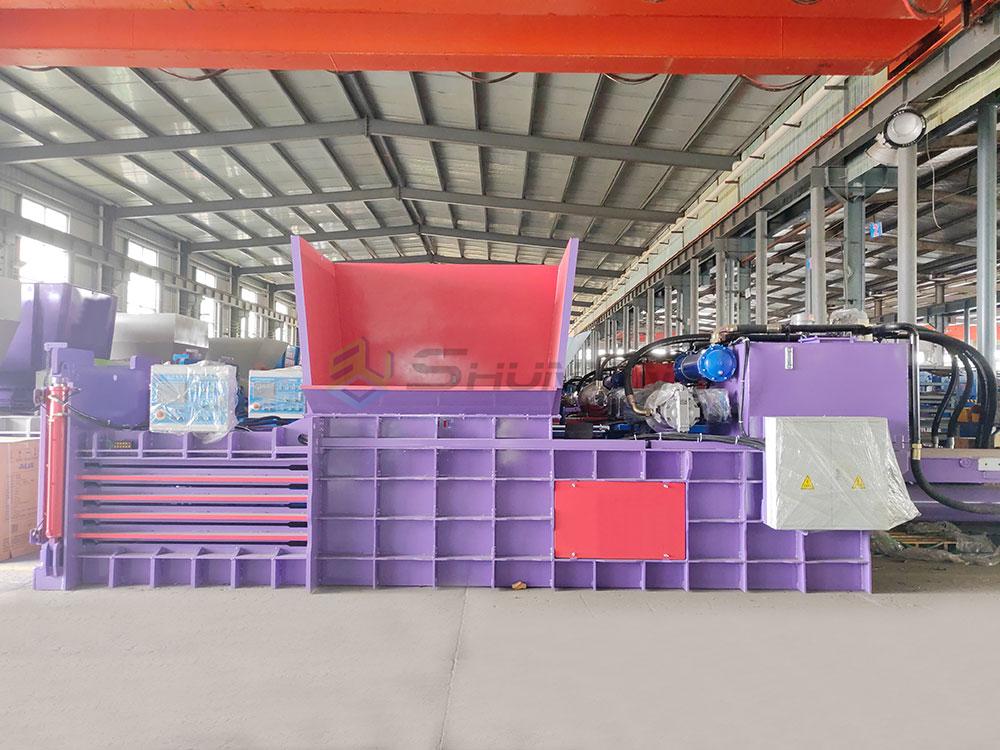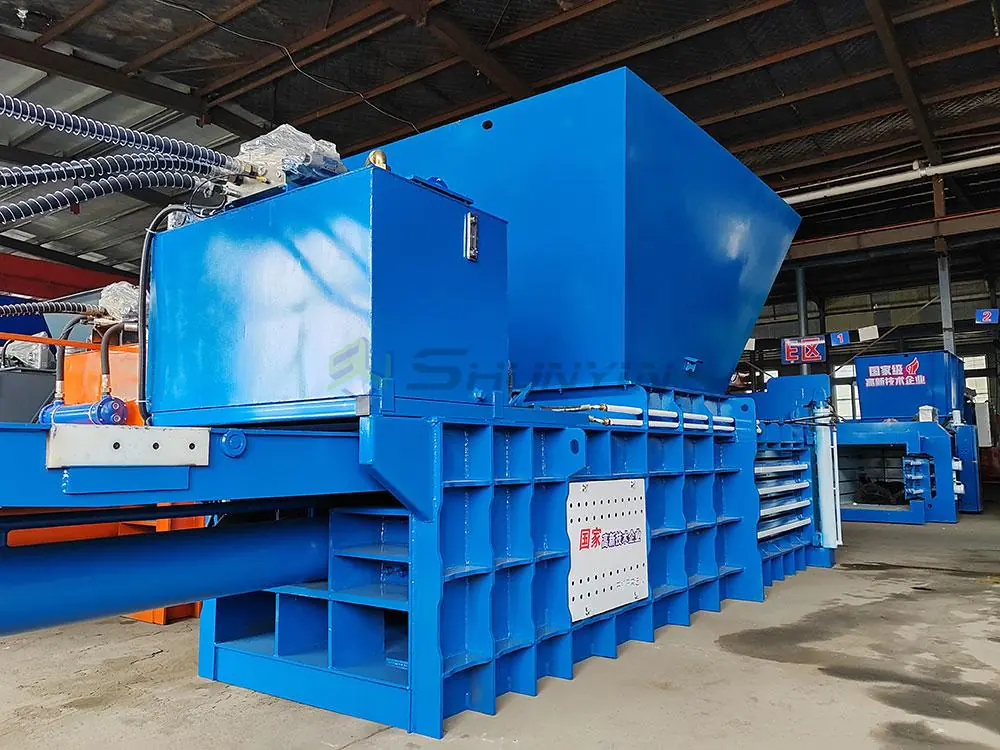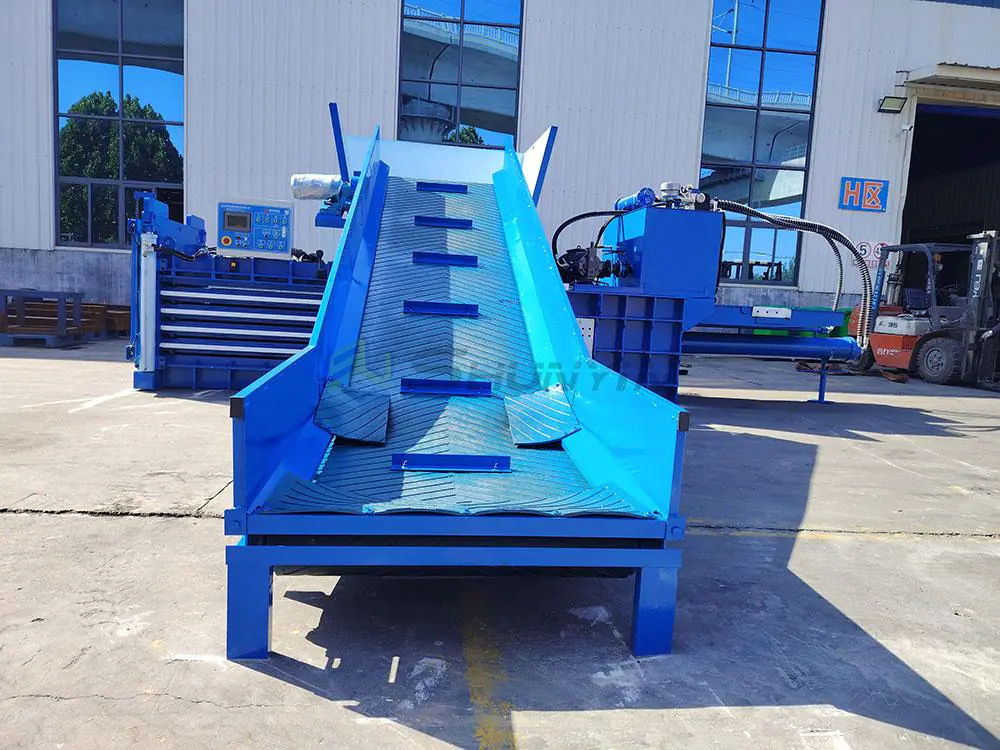Costly loose recyclables eating your margins? Sorting chaos limiting growth? Since 2007, our balers have helped recyclers worldwide boost profits by 40% versus traditional handling methods while reducing labor needs dramatically.
A recycling baler is a hydraulic compression machine transforming loose recyclables into dense bales for easy storage and transportation. At Shunyin, we engineer industrial-grade balers with material-specific technology ensuring maximum density for cardboard, plastic, and metal waste streams.
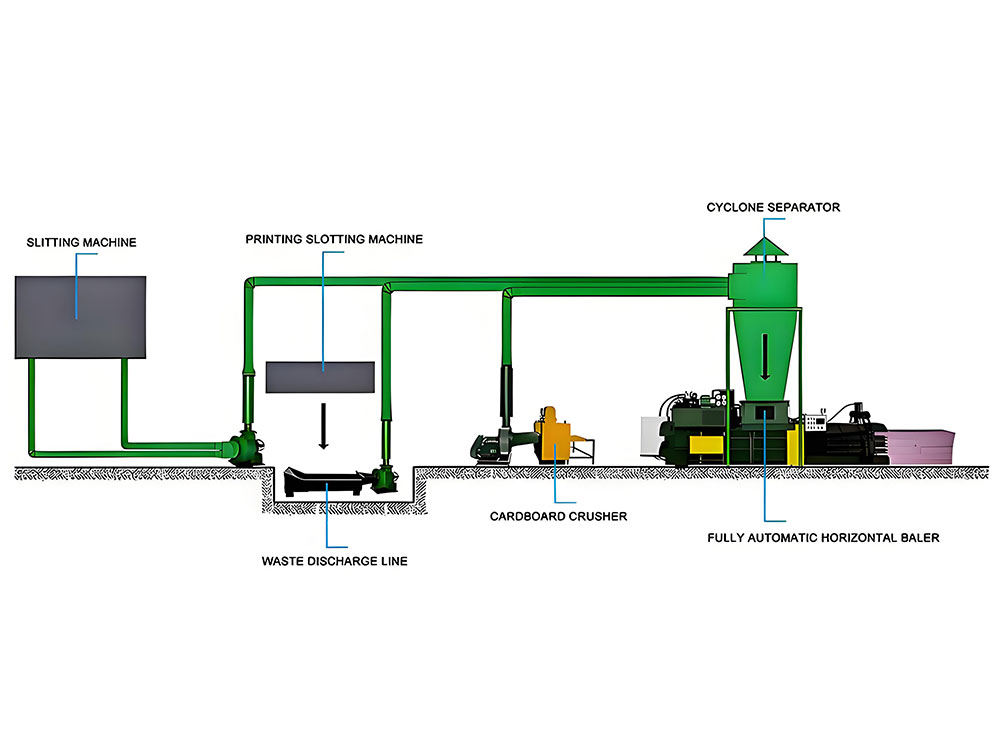
Singapore metals recyclers increased revenue 65% after switching to our custom machines. Discover how below. For immediate capacity assessment: WhatsApp us.
What Exactly Constitutes a Industrial-Grade Recycling Baler? Core Features Explained
Frustrated by machines failing under real workload? Workshop builds crack under pressure. Our ISO-certified factory1 performs 48-hour stress tests on every unit before shipment – ensuring 10+ years of stable operation.
A professional recycling baler features heavy-duty steel construction, specialized hydraulic compression systems, material-specific settings, and automated strapping for consistent bale integrity. All Shunyin models include remote diagnostics and CE safety compliance.

Critical Differentiators from Generic Compactors
Through solving 500+ recycling operations pains, we’ve identified:
-
Performance Metrics Comparison:
Equipment TypeBuild Quality Pressure Range Bale Uniformity Resale Value Basic Compactor Thin steel <15 tons Unstable blocks $6-$15/ton Standard Baler Reinforced 15-80 tons ±5% variation $40-$110/ton Shunyin Smart Baler Aircraft-grade 100+ tons ±2% consistency Certified Premium
Discover your premium potential: Email material samples for density report2.
What Makes Scrap Balers Different from General Recycling Systems? Metallurgical Engineering Secrets
Failing with shredded metal? Aluminum fractures under wrong pressure. Our metallurgists created temperature-controlled compression zones after 150 material trials in 2021.
A scrap baler applies extreme force (up to 150 tons) with strategically placed shear blades to form non-fractured metal bales. Shunyin systems feature intelligent pressure mapping that auto-adjusts for copper, aluminum, brass, and mixed alloys.
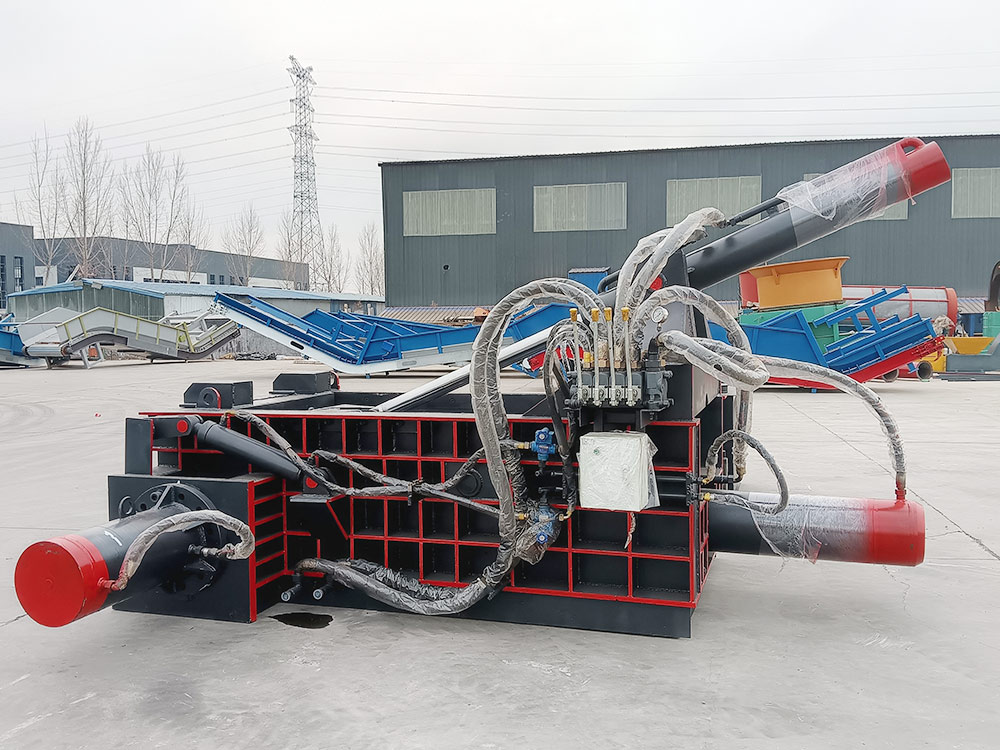
Metallurgical Preservation Techniques
Avoiding common mistakes requires advanced engineering:
-
Material-Specific Protocols:
Copper/Brass Processing
- Controlled ram speed prevents stress marks
- Temperature regulation maintains ductility
- Density: 2.8-3.1g/cm³ for mill acceptance
Aluminum Challenges
- Air pocket elimination through cross-compression
- Anti-fracture cushioning layers
- Precision cutting eliminates sharp edges
Critical Upgrade Costs:
Feature Basic Import Model Shunyin Engineering Material Sensors Missing Laser + thermal mapping Heat Management Passive cooling Active water-jacketed Resale Value Below market +30% recognized premium
Test our technology: Ship 20kg metal scraps for free trial report.
What Critical Purpose Does a Baler Solve Beyond Volume Reduction? Profit Generation Uncovered
Expecting just space savings? Japanese supermarkets uncover revenue streams adding $26,000 monthly through our integrated baling solutions. Simple compaction produces garbage – professional baling creates commodities.
The core purpose of balers is transforming waste handling from costly disposal into revenue generation through standardized bales that recycling centers pay premium prices for. Proper density = reliable income streams.

Financial Transformation Mechanics
After implementing 2000+ systems globally:
-
Revenue Calculation Factors:
- Quality Premiums:
- Base cardboard: $85/ton
- Corrugated ISO bale: $125-$150/ton
- PET bottle bales (clean): $400+/ton
- Operational Savings:
- 78% less floor space consumed
- 65% reduction in hauling frequency
- 28% labor cost reduction
-
Taxation and Compliance Benefits:
Region Recycling Incentives Certification Requirements Shunyin Support EU Up to 23% tax credit EN12013 compliance Full documentation NA Landfill diversion rebates OSHA machine guarding Onsite training Japan Zero-waste subsidies JIS industrial standards Localized manuals
Maximize your ROI: Request subsidy guidance.
How Do Warehouse Balers Specifically Address Space Constraints? Layout Engineering
Storage costing $45/m²? Balers shouldn’t consume profit areas. We design ultra-compact installations – a Tokyo retailer fit our system in just 3m² while managing 5-ton daily output.
A warehouse baler installs directly where waste accumulates (shipping areas, fulfilment centers) with optimal workflow integration. Shunyin vertical units require as little as 2.5m² footprint while processing up to 800kg/hour cardboard.

Site-Specific Engineering Checklist
After seeing warehouses fail at implementation:
-
Integration Planning Matrix:
Warehouse Type Common Failures Shunyin Solution Efficiency Gain E-commerce FC Conveyor collisions Custom side-feed 25 trips → 2 daily F&B Distribution Wet contamination IP68 weatherproofing +90% waste recovery Retail Distribution Safety violations Auto-lock-out sensors Zero downtime incidents -
Flow Optimization:
Path Reduction
- Worker travel reduced from 200m to <5m
- 90% wage cost reduction versus centralized processing
Compaction Yield
- Standard loose cardboard: 150m³/truck
- Shunyin bales: 805m³/truck (5.36×)
Solve your space puzzle: Send floor plan for free layout.
Conclusion
Professional recycling starts with engineered balers. Contact our engineering team on WhatsApp or email [email protected] to transform waste into reliable profit streams.


